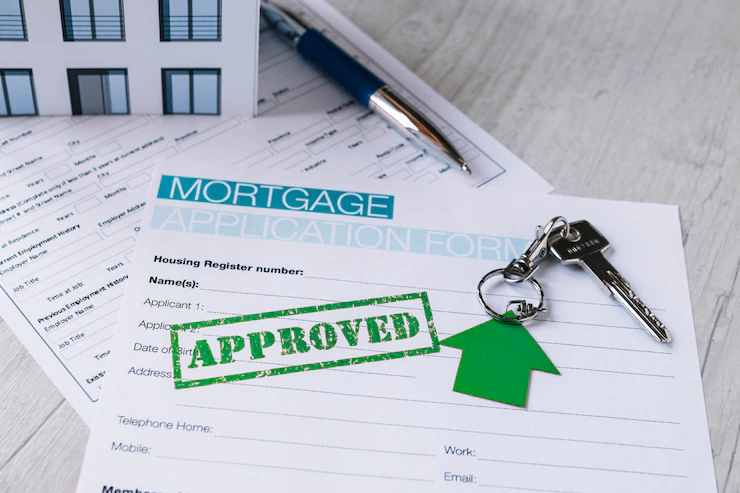Flipping homes for profit is a popular way to make money in the real estate market. It involves buying a property, renovating it, and then selling it at a higher price. But the key to making money in this business is finding cheap homes that you can flip for profit.
Here are 10 of the best ways to find cheap homes that you can flip for profit:
Contents
- 1 Top 10 Ways To Find Cheap Homes To Flip
- 1.1 1. Search Online Listings
- 1.2 2. Attend Foreclosure Auctions
- 1.3 3. Network with Real Estate Agents
- 1.4 4. Look Into Pre-Foreclosures
- 1.5 5. Utilize Property Wholesalers
- 1.6 6. Drive Around Neighborhoods
- 1.7 7. Join Real Estate Investment Groups
- 1.8 8. Research Tax Sales & Government Auctions
- 1.9 9. Look Into Probate Properties
- 1.10 10. Check Out Bank Repositions & Short Sales
Top 10 Ways To Find Cheap Homes To Flip
1. Search Online Listings

Online listings are one of the most convenient ways to find cheap homes that you can flip. You can search by location, price range, and other criteria to narrow down your search and find properties that fit your budget and investment goals.
Additionally, many online listing sites offer additional information about each property, such as estimated renovation costs and potential resale values.
2. Attend Foreclosure Auctions

Foreclosure auctions are another great way to find cheap homes that you can flip. At these auctions, banks or other lenders will sell off properties they have repossessed from borrowers who have defaulted on their loans.
The properties are usually sold at significantly discounted prices, which makes them attractive investments for flippers looking to make a quick buck. However, it’s important to note that these auctions tend to be highly competitive, so you need to do your research beforehand if you want any chance of success.
3. Network with Real Estate Agents

Real estate agents often have access to exclusive listings of properties before they hit the open market, which makes them an invaluable resource when searching for cheap homes that you can flip for profit.
Reach out to local agents in your area and let them know what type of property you’re looking for, so they can keep an eye out for potential deals on your behalf.
4. Look Into Pre-Foreclosures

Pre-foreclosures are another great option when searching for cheap homes that you can flip for profit, as they tend to be priced below market value due to their distressed nature. To locate pre-foreclosures in your area, contact local banks or check public records such as court filings or county tax records, which may list individuals who are facing foreclosure proceedings on their properties.
5. Utilize Property Wholesalers

Property wholesalers specialize in locating distressed properties. They negotiate deals with sellers before flipping them off at a markup price. This makes them ideal partners when searching for cheap homes that you can flip for profit quickly and easily. You don’t have to go through all the legwork yourself.
Be sure to thoroughly vet any wholesaler before doing business with them, as there are plenty of scammers out there looking to take advantage of unsuspecting buyers!
6. Drive Around Neighborhoods

Sometimes the best deals aren’t always listed online or even advertised publicly, so driving around neighborhoods is still one of the best ways to uncover hidden gems when searching for cheap homes.
Keep an eye out for signs advertising “fixer uppers” or “handyman specials.” These types of properties tend to be priced lower than comparable houses due to their condition. This allows savvy investors like yourself to make some serious profits after renovations!
7. Join Real Estate Investment Groups

Real estate investment groups provide members with access to exclusive deals on properties throughout their city or region, which makes them great resources when searching for cheap homes that you can flip quickly and easily.
Many groups also host regular meetings where members discuss strategies and share tips about maximizing profits from flips—making them invaluable resources, regardless if this is your first time flipping houses!
8. Research Tax Sales & Government Auctions

Tax sales occur when municipalities auction off delinquent tax liens on residential real estate. At the same time, government auctions happen whenever federal agencies liquidate seized assets such as foreclosed houses.
Both options offer investors unique opportunities to purchase discounted real estate; however, it’s important to note that there tends to be quite a bit of competition at these events. So, it pays to do some research beforehand if you want any chance of success!
9. Look Into Probate Properties

Probate refers to a process wherein a deceased person’s assets are distributed according to his/her will. However, sometimes certain pieces of real estate may be left behind unclaimed—which presents an excellent opportunity for flippers looking to score bargain prices! To locate probate properties in an area, contact local courts and inquire about any upcoming sales.
10. Check Out Bank Repositions & Short Sales

Banks typically repossess (or repo) houses from homeowners who fail to pay mortgage payments, while short sales involve selling a house below its market value in order to avoid foreclosure proceedings.
Both options offer investors the chance to acquire discounted real estate. However, short sales tend to be more complicated since you must negotiate directly with the lender, whereas bank repositions require less paperwork since they are already owned by the institution itself!
Additional:























